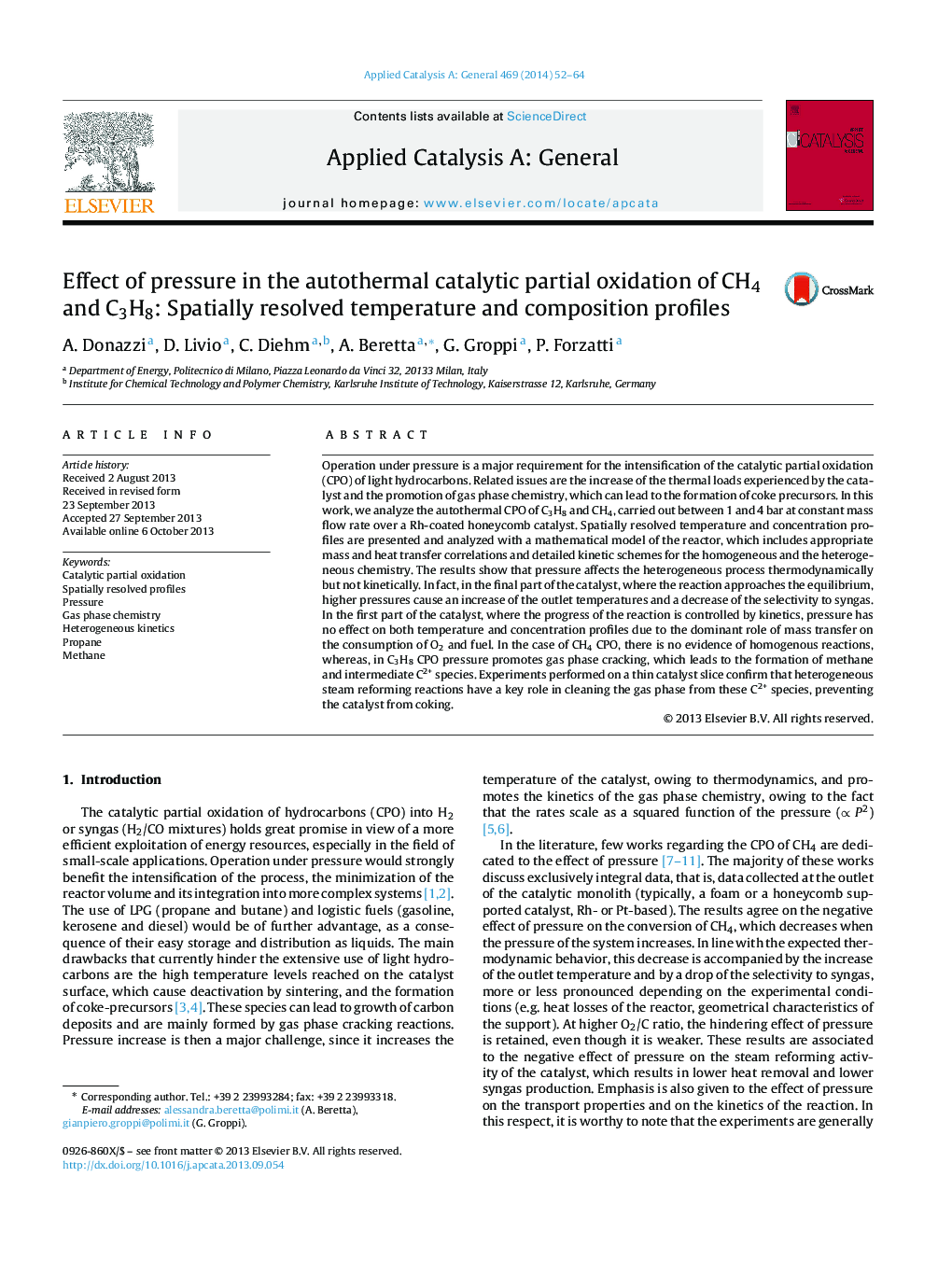| کد مقاله | کد نشریه | سال انتشار | مقاله انگلیسی | نسخه تمام متن |
|---|---|---|---|---|
| 40150 | 45845 | 2014 | 13 صفحه PDF | دانلود رایگان |

• Spatially resolved CPO experiments were performed between 1 and 4 bar with CH4 and C3H8.
• Pressure affects the heterogeneous process thermodynamically but not kinetically.
• Pressure promotes gas phase conversion of C3H8 via cracking and oxycracking.
• Pressure promotes the formation of intermediate olefins and methane via C3H8 cracking.
• Coupling of gas phase and surface chemistry moderates the catalyst hot spot.
Operation under pressure is a major requirement for the intensification of the catalytic partial oxidation (CPO) of light hydrocarbons. Related issues are the increase of the thermal loads experienced by the catalyst and the promotion of gas phase chemistry, which can lead to the formation of coke precursors. In this work, we analyze the autothermal CPO of C3H8 and CH4, carried out between 1 and 4 bar at constant mass flow rate over a Rh-coated honeycomb catalyst. Spatially resolved temperature and concentration profiles are presented and analyzed with a mathematical model of the reactor, which includes appropriate mass and heat transfer correlations and detailed kinetic schemes for the homogeneous and the heterogeneous chemistry. The results show that pressure affects the heterogeneous process thermodynamically but not kinetically. In fact, in the final part of the catalyst, where the reaction approaches the equilibrium, higher pressures cause an increase of the outlet temperatures and a decrease of the selectivity to syngas. In the first part of the catalyst, where the progress of the reaction is controlled by kinetics, pressure has no effect on both temperature and concentration profiles due to the dominant role of mass transfer on the consumption of O2 and fuel. In the case of CH4 CPO, there is no evidence of homogenous reactions, whereas, in C3H8 CPO pressure promotes gas phase cracking, which leads to the formation of methane and intermediate C2+ species. Experiments performed on a thin catalyst slice confirm that heterogeneous steam reforming reactions have a key role in cleaning the gas phase from these C2+ species, preventing the catalyst from coking.
Figure optionsDownload high-quality image (195 K)Download as PowerPoint slide
Journal: Applied Catalysis A: General - Volume 469, 17 January 2014, Pages 52–64